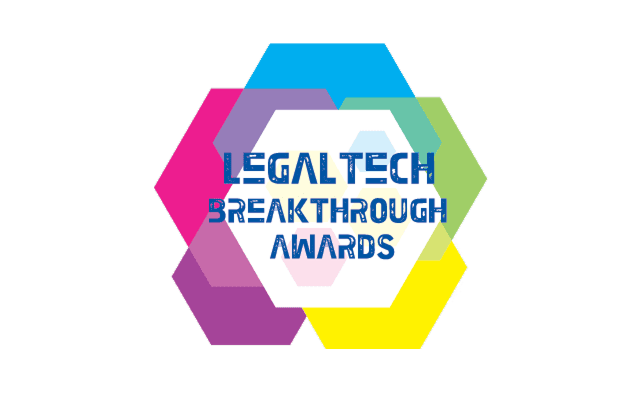Law Commission Consultation: Review of the Arbitration Act
Explore the Law Commission's consultation on the review of the Arbitration Act, and understand its potential impact on arbitration practices, with TrialView.
ArticlesBack in 2022, the Law Commission published a Consultation Paper exploring potential reforms to the Arbitration Act 1996. The Act, which provides the legal framework for arbitration in England and Wales, is being assessed due to the exponential growth of London-based arbitration since it came into force and a recognised need to modernise certain sections of the legislation. A recent public consultation event, co-hosted by the Chartered Institute of Arbitrators (CIARB) and the Law Commission, sought insights from leading experts, generating widespread approval for the Commission's balanced and rigorous approach.
While the consultation covered a wide range of topics, one area of particular note is the Commission's provisional conclusion on technology. Paragraph 1.100 of the summary suggests the Act is already compatible with modern technology, allowing for remote hearings and electronic documentation. However, consultees are asked whether the Act should be amended to expressly empower an arbitral tribunal to order such measures. As the industry seeks greener and more efficient ways of working, ensuring the legal framework actively champions—rather than just permits - the use of technology is a critical consideration for the future.
The Proposed Reform
The consultation paper outlines several other key areas of proposed reform:
- Confidentiality: The Law Commission suggests that the law on confidentiality should not be codified, allowing it to develop flexibly through case law on a case-by-case basis.
- Independence of Arbitrators: The proposal is not to impose an explicit duty of independence, provided arbitrators adhere to the existing duty of impartiality and divulge any conflicts of interest.
- Summary Disposal: A new provisional proposal would allow arbitrators to deal with claims that lack merit through summary determinations, saving parties time and costs, though this would be a non-mandatory power.
- Challenge to Arbitral Awards (Section 67): This is a more controversial area. The reform proposes that a challenge to an award should take the form of a rehearing rather than a full, fresh hearing, to prevent what some see as a "disingenuous second bite of the cherry."
- Appeals on a Point of Law (Section 69): The Law Commission concluded that no reform is needed for this section, viewing it as a reasonable compromise between the finality of awards and the rectification of errors.
Overall, the consensus from the consultation event was that the Law Commission has done a good job in proposing measured and balanced improvements to the Act. As the legal landscape continues to evolve, these reforms aim to solidify England and Wales as a leading centre for international arbitration by enhancing the system's efficiency, clarity, and adaptability for the modern era.
Technological Innovation
While legal reforms set the stage, technological innovation is rapidly changing the performance. Beyond Online Dispute Resolution (ODR), one of the most impactful advances is Artificial Intelligence (AI). AI has evolved from performing mundane tasks like document classification to powering sophisticated tools that are reshaping legal practice.
Generative AI, which can create new text and data, is at the forefront. Tools like ChatGPT are already assisting arbitrators and lawyers with legal research, document summarisation, and drafting. This innovation is global. In China, institutions like the Shenzhen Court of International Arbitration are testing AI to help arbitrators analyse cases and review documents. In Singapore, courts are experimenting with AI for small claims, with the Chief Justice even speculating about a future where judges may not need traditional legal training, thanks to AI's potential.
Benefits and Challenges
The benefits are profound. AI has the potential to enhances the core advantages of arbitration; efficiency and cost savings, by identifying frivolous claims early and automating tasks traditionally performed by junior associates. This can democratise the field, allowing smaller firms to compete with larger ones by producing high-quality work with fewer resources. Furthermore, litigation funders like Burford Capital are exploring AI to predict case outcomes, suggesting a future where AI is integral not just to case management, but to strategic decision-making.
However, this integration is not without significant challenges. The "black box" problem, where AI's decision-making process is opaque, creates issues of transparency and trust, which are fundamental to arbitration. The potential for misuse is also real; the rise of "deepfake" videos poses a threat to the integrity of remote testimony. Additionally, confidentiality, a cornerstone of arbitration, can be compromised when using AI tools that do not guarantee data privacy.
Looking ahead, technology will undoubtedly continue to be transformative. AI itself is likely to become the subject of future disputes, whether in annulment proceedings challenging its use or in intellectual property cases involving AI-generated inventions. Despite these challenges, arbitration remains the preferred method for resolving disputes involving emerging technologies, as confirmed by a recent International Bar Association survey. The system's flexibility makes it uniquely suited to adapt to these novel issues.
The ongoing reform of the Arbitration Act 1996 and the surge in legal technology are not separate trends but are deeply intertwined. The Law Commission’s work to create a clear, modern legal framework provides the certainty needed for technological adoption. Simultaneously, the efficiency gains from technology reinforce the attractiveness of arbitration as a dispute resolution mechanism.
Where Does TrialView Come In?
For legal professionals and arbitral tribunals navigating this new terrain, platforms like TrialView are essential. TrialView provides the robust, secure, and integrated technology infrastructure that aligns perfectly with this modernising vision. Our solutions for e-bundling, secure document management, and high-fidelity remote hearings empower tribunals to conduct proceedings with maximum efficiency and gravitas. In an era where the explicit empowerment of technology is being debated in law, and the risks of generic tools are becoming apparent, TrialView offers a purpose-built environment that supports the arbitration community’s shift towards more flexible, cost-effective, and sustainable practices, while upholding the highest standards of confidentiality and procedural integrity.
The future of arbitration is a blended one - where law uses technology, but where human expertise is augmented, not replaced. By embracing both thoughtful reform and powerful, secure technology, the industry can ensure it remains the premier choice for resolving international disputes.
To learn more about the consultation and the full scope of proposed reforms, you can find the Law Commission's documentation here.
See TrialView in action
As one of the leading litigation platforms, TrialView is the perfect addition to your tech stack. Book a free demo to get started.
Book a demo.svg)



